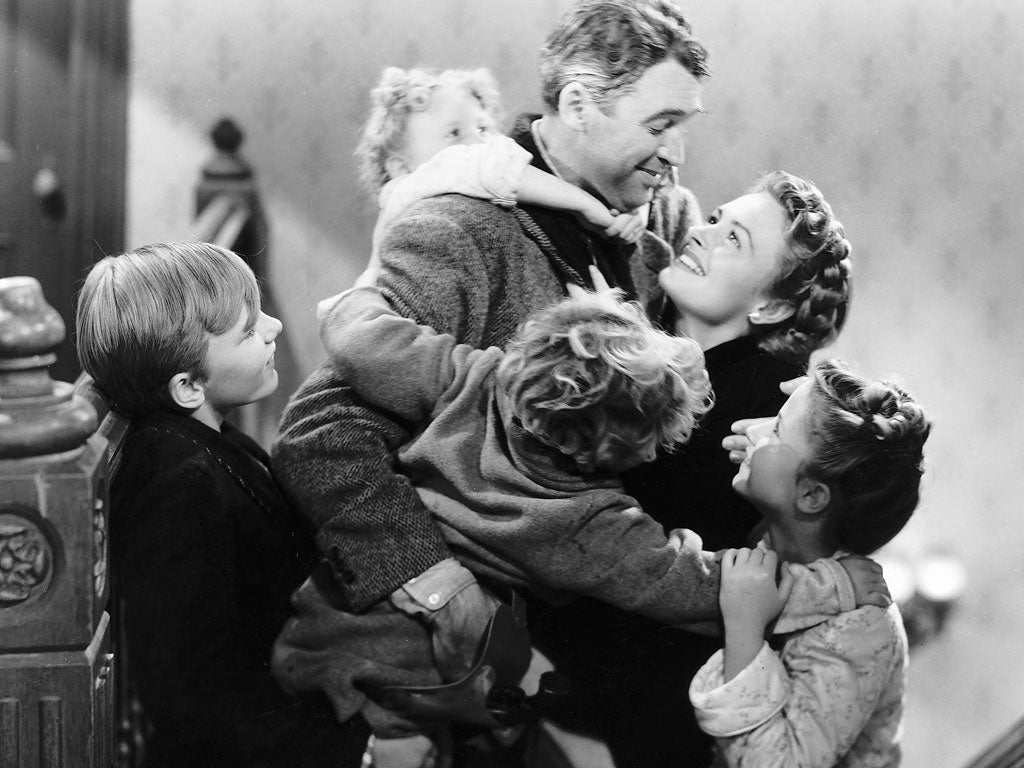A new lease of life for a forgotten Christmas classic
The story that inspired It's a Wonderful Life is finally back in print

Your support helps us to tell the story
From reproductive rights to climate change to Big Tech, The Independent is on the ground when the story is developing. Whether it's investigating the financials of Elon Musk's pro-Trump PAC or producing our latest documentary, 'The A Word', which shines a light on the American women fighting for reproductive rights, we know how important it is to parse out the facts from the messaging.
At such a critical moment in US history, we need reporters on the ground. Your donation allows us to keep sending journalists to speak to both sides of the story.
The Independent is trusted by Americans across the entire political spectrum. And unlike many other quality news outlets, we choose not to lock Americans out of our reporting and analysis with paywalls. We believe quality journalism should be available to everyone, paid for by those who can afford it.
Your support makes all the difference.One cold February night in 1938, Philip Van Doren Stern had a dream. In it, a family man at the end of his tether encountered a guardian angel who showed him what the world would be like if he had never been born. Sounds familiar? Of course it does. It's the plot of It's a Wonderful Life. Frank Capra's 1946 film was nominated for five Oscars, is frequently voted one of the best of all time and is now as much a part of Christmas as mince pies and Doctor Who. Stern's contribution has been largely forgotten. Now, the original short story that grew out of his dream is to be republished for the first time in decades.
Stern, a publisher and editor of historical tomes who spent the war producing morale-boosting pocket books for soldiers, took several years to write his dream down on paper. When he finally completed his short story, The Greatest Gift, in 1943, he could not find a publisher or magazine willing to print it. Nothing daunted, he had 200 24-page pamphlets printed up at his own expense and sent them out to friends and family instead of a Christmas card.
"I was in the third grade and remember delivering a few of these cards to my teachers and my friends, who were children from a variety of backgrounds and religions", says his daughter, Marguerite Stern Robinson. "My father, who was himself from a mixed religious background, explained to me that while this story takes place at Christmas time, and that we were sending it as a Christmas card to our friends, it is a universal story for all people in all times."
A few months later, Stern was called up by RKO Pictures who bought his "Christmas card" for $50,000 and passed it on to Frank Capra. The rest is cinematic history.
The publishing history of The Greatest Gift is rather less illustrious. Stern eventually sold it to Reader's Scope and Good Housekeeping magazines in 1944 and a book was published the same year, with illustrations by Rafaello Busoni. A small American edition came out in 1996 but the new book will be the first time in 67 years that Stern's creation is given a wide release, in accordance with his vision.
It's all thanks, again, to that batch of Christmas cards. Among the 200 recipients was a publisher friend of Stern's called Bennett Glazer. When he died, his son, Tom Glazer, found the original in his belongings and decided to reprint it with his company Graphic Image Inc. He commissioned Finlay Cowan, who has previously produced album covers for Pink Floyd and Red Hot Chili Peppers to create the retro illustrations and asked Stern Robinson to write the afterword.
In it, she recalls how her father, who died in 1984, developed the idea behind one of the greatest movies of all time while shaving on a Saturday morning. "In contrast to his other writings, mainly on history, he said that the idea for The Greatest Gift had emerged full blown, and he had never considered changing it. What he had to do, he said, was learn to write it." His first draft was, by his own admission, "terrible" and it took several more attempts before he was satisfied. Despite the knock-backs – from everyone from The Saturday Evening Post to farm journals – he became fond of the story that no one wanted and, like his hero, refused to give into failure.
His persistence paid off. After the film's premiere in New York in 1946, Stern sent one of the original Christmas cards to Capra. "He replied, 'I thank you for sending it and I love you for creating it'," recalls Stern Robinson.
'The Greatest Gift' is out now (Cluster Publishing, £11.99)
Join our commenting forum
Join thought-provoking conversations, follow other Independent readers and see their replies
Comments